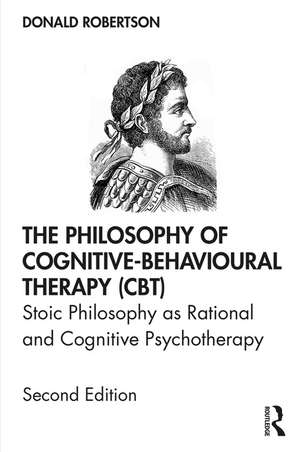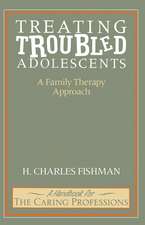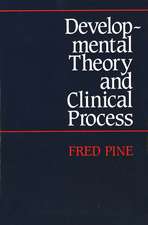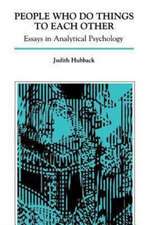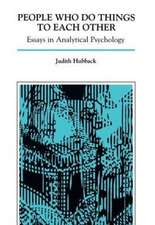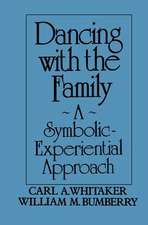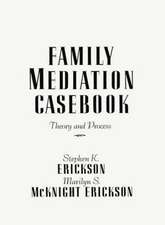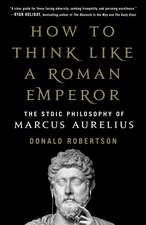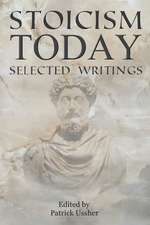The Philosophy of Cognitive-Behavioural Therapy (CBT): Stoic Philosophy as Rational and Cognitive Psychotherapy
Autor Donald Robertsonen Limba Engleză Paperback – 12 dec 2019
This exciting new edition of The Philosophy of Cognitive-Behavioural Therapy (CBT) demonstrates how techniques and concepts from Socratic philosophy, especially Stoicism, can be integrated into the practice of CBT and other forms of psychotherapy. What can we learn about psychological therapy from ancient philosophers? Psychotherapy and philosophy were not always separate disciplines. Here, Donald Robertson explores the relationship between ancient Greek philosophy and modern cognitive-behavioural psychotherapy.
The founders of CBT described Stoicism as providing the "philosophical origins" of their approach and many parallels can be found between Stoicism and CBT, in terms of both theory and practice. Starting with hypnotism and early 20th century rational psychotherapy and continuing through early behaviour therapy, rational-emotive behaviour therapy (REBT), and cognitive-behavioural therapy (CBT), the links between Stoic philosophy and modern psychotherapy are identified and explained. This book is the first detailed account of the influence of Stoic philosophy upon modern psychotherapy. It provides a fascinating insight into the revival of interest in ancient Western philosophy as a guide to modern living. It includes many concepts and techniques, which can be readily applied in modern psychotherapy or self-help.
This new edition, covering the growth in third wave CBT, including mindfulness and acceptance-based therapies, will appeal to any mental health practitioner working in this area, as well as students and scholars of these fields.
| Toate formatele și edițiile | Preț | Express |
|---|---|---|
| Paperback (1) | 259.60 lei 3-5 săpt. | +19.89 lei 4-10 zile |
| Taylor & Francis – 12 dec 2019 | 259.60 lei 3-5 săpt. | +19.89 lei 4-10 zile |
| Hardback (1) | 1036.34 lei 6-8 săpt. | |
| Taylor & Francis – 3 dec 2019 | 1036.34 lei 6-8 săpt. |
Preț: 259.60 lei
Preț vechi: 273.26 lei
-5% Nou
49.69€ • 53.99$ • 41.77£
Carte disponibilă
Livrare economică 31 martie-14 aprilie
Livrare express 14-20 martie pentru 29.88 lei
Specificații
ISBN-10: 036721914X
Pagini: 262
Dimensiuni: 156 x 234 x 16 mm
Greutate: 0.41 kg
Ediția:2 ed
Editura: Taylor & Francis
Colecția Routledge
Locul publicării:Oxford, United Kingdom
Public țintă
General, Postgraduate, Professional, Professional Practice & Development, and UndergraduateCuprins
Notă biografică
Recenzii
"Robertson rightly reminds us of how much CBT owes its philosophical origins to the Stoics but, sadly, how often this debt is insufficiently acknowledged. He urges us to redirect our attention to the past to see how modern CBT still has much to learn from its ancient precursors. Highly recommended." Michael Neenan, Co-Director of the CBT Programme, Centre for Stress Management, Bromley, Kent, UK
"Many of us have felt the need for a book that covers the underlying philosophy of the cognitive-behavioural therapies in much greater depth. This book is a fascinating read and could be considered as either a prequel or a sequel to the standard textbook read by a trainee or experienced cognitive-behavioural or rational emotive practitioner who wants to understand these approaches to therapy within an historical framework." Professor Stephen Palmer, PhD, FARBT, FBACP, Director of the Centre for Stress Management, London, UK
"The author has uncovered a wealth of connections between modern cognitive-behavioural therapies and ancient Stoic philosophy. It should be read by anyone interested in understanding the historical roots of CBT or in learning about how ancient psychotherapeutic methods can add to the modern therapist's toolkit." Tim LeBon, UKCP registered psychotherapist and author of Wise Therapy
Descriere
This exciting new edition of The Philosophy of Cognitive-Behavioural Therapy (CBT) demonstrates how techniques and concepts from Socratic philosophy, especially Stoicism, can be integrated into the practice of CBT and other forms of psychotherapy. What can we learn about psychological therapy from ancient philosophers? Psychotherapy and philosophy were not always separate disciplines. Here, Donald Robertson explores the relationship between ancient Greek philosophy and modern cognitive-behavioural psychotherapy.
The founders of CBT described Stoicism as providing the "philosophical origins" of their approach and many parallels can be found between Stoicism and CBT, in terms of both theory and practice. Starting with hypnotism and early 20th century rational psychotherapy and continuing through early behaviour therapy, rational-emotive behaviour therapy (REBT), and cognitive-behavioural therapy (CBT), the links between Stoic philosophy and modern psychotherapy are identified and explained. This book is the first detailed account of the influence of Stoic philosophy upon modern psychotherapy. It provides a fascinating insight into the revival of interest in ancient Western philosophy as a guide to modern living. It includes many concepts and techniques, which can be readily applied in modern psychotherapy or self-help.
This new edition, covering the growth in third wave CBT, including mindfulness and acceptance-based therapies, will appeal to any mental health practitioner working in this area, as well as students and scholars of these fields.
